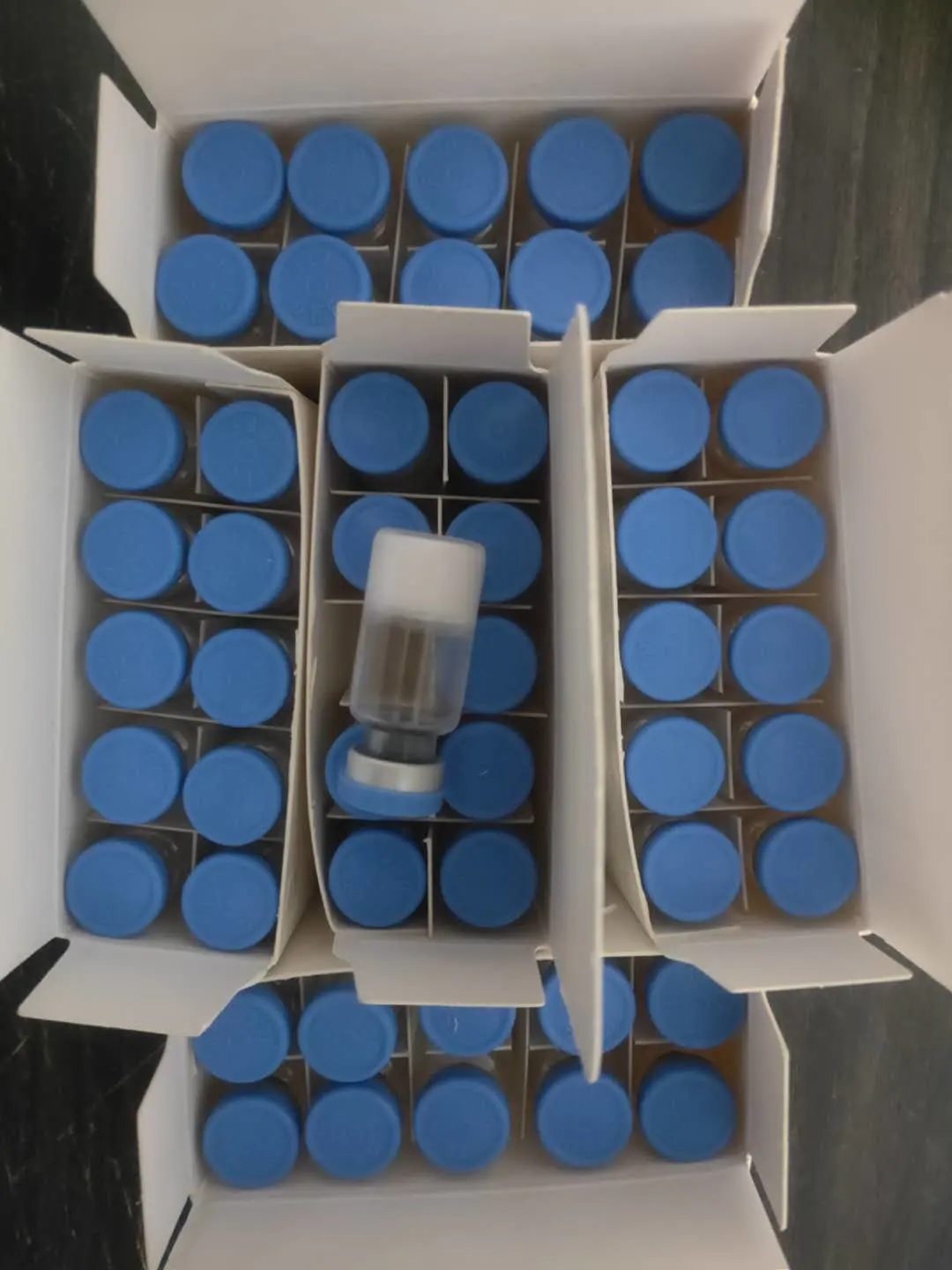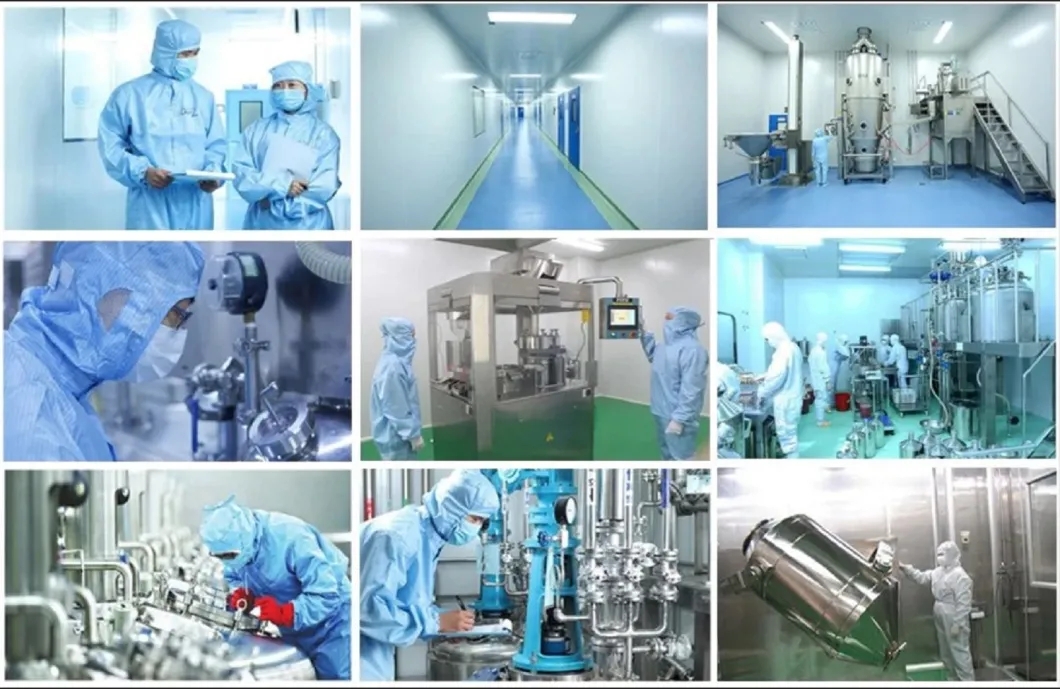TB-500 is a peptide fragment hormone that is primarily used in the treatment of various muscle injuries or pain caused by inflammation. There is very little official human data available for this product; however, it has been a longtime hormone used in racehorses. TB-500, although synthetic, serves to act as a synthetic form (loosely) of Thymosin Beta-4 (TB-4). TB-500 is not TB-4; although very commonly confused as TB-4, it is designed to provide the benefits of the naturally occurring thymus produced hormone.

TB-500 Functions and Traits
TB-500, also known as thymosin Beta-4, is a peptide being studied for its potential therapeutic properties. Here are some of its functions and features: Tissue Regeneration: TB-500 is believed to promote tissue repair and regeneration. It has been shown to stimulate the migration of various types of cells to the site of injury, thereby aiding the healing process. Anti-Inflammatory Effects: TB-500 has been found to have anti-inflammatory properties. It can help reduce inflammation in injured tissue and promote a more favorable healing environment. Blood vessel formation: TB-500 has been observed to stimulate the formation of new blood vessels, a process called angiogenesis. This helps improve blood supply to damaged tissue and promotes healing.
Neuroprotective effects: Research suggests that TB-500 may have neuroprotective effects. It has been shown to protect neurons from oxidative stress and damage, possibly helping to protect brain function. Pain Reduction: TB-500 has been reported to have analgesic properties, helping to reduce pain associated with injury and inflammation. It is important to note that while TB-500 has shown potential therapeutic benefits, further research is needed to fully understand its mechanism of action and its degree of effectiveness. Additionally, it is worth consulting a healthcare professional before considering using TB-500 or any other peptide for therapeutic purposes.

TB-500 Effects
TB-500, also known as thymosin Beta-4, is a peptide that has been studied for its potential therapeutic effects. Here are some reported results of the TB-500: Tissue Repair and Regeneration: TB-500 is believed to stimulate the migration of various cell types to the site of injury, promoting tissue repair and regeneration. Its potential to heal wounds, including injuries to muscles, tendons and ligaments, has been studied. Anti-inflammatory properties: TB-500 has been shown to have anti-inflammatory effects by reducing inflammation in damaged tissue. This may help reduce pain, swelling, and improve the overall healing process.
Enhances blood vessel formation: TB-500 has been found to stimulate the growth of new blood vessels, called angiogenesis. This may improve blood flow and oxygen delivery to the injured area, aiding tissue repair. Improves cell survival: TB-500 has been reported to increase cell survival and protect cells from damage and oxidative stress. This is beneficial for a variety of physiological processes, including tissue repair and protection from damage. Pain Relief: TB-500 is believed to have analgesic properties and can relieve pain in patients with injury or inflammation. While TB-500 has shown promising effects in preclinical and some clinical studies, it is important to note that further research is needed to fully elucidate its effects and determine its safety and effectiveness in humans. Before considering using any new substance for therapeutic purposes, it is always recommended to consult a healthcare professional.

Side Effects of TB-500
Although TB-500 was generally well tolerated in preclinical and clinical studies, there is limited information on its potential side effects in humans. It is important to note that individuals may react differently to any substance. Here are some reported side effects of TB-500: Headaches: Some people report headaches after using TB-500. The exact cause of these headaches is unknown, but may be related to the peptide's effect on blood vessels. Flushing: A small number of users have reported flushing, which is temporary redness or warmth of the face or body. This is believed to be a result of increased blood flow to the skin. Nausea: In some cases, taking TB-500 can cause a feeling of nausea or upset stomach.
This is a relatively rare side effect that usually resolves on its own. Temporary Thymic Overactivity: TB-500 originates in the thymus and may cause temporary overactivity of the thymus in some individuals. This may cause minor immune system changes, such as changes in white blood cell counts. However, these changes are usually temporary and resolve on their own. Unknown Long-Term Effects: Because TB-500 is a relatively new compound, the long-term effects on human health are not fully understood. Further research is needed to evaluate its long-term safety and effectiveness. It is important to consult a healthcare professional before using TB-500 or any other peptide or drug. They can provide personalized advice, monitor your health, and inform you of any potential risks or interactions.

TB-500 Administration
TB-500 is a synthetic peptide that has been studied for its potential therapeutic effects, particularly in tissue repair and healing. It is usually administered via subcutaneous injection, in which the peptide is injected into the fatty tissue beneath the skin. Here are some guidelines for dosing TB-500: Cleaning: Before injecting TB-500, make sure the injection site and hands are clean to minimize the risk of infection. Dosage: The appropriate dose of TB-500 may vary based on a variety of factors, including individual weight, desired results, and advice provided by a healthcare professional. It is important to follow the prescribed dosage and not exceed the recommended amount. Injection Site: TB-500 is usually injected subcutaneously. Common injection sites include the fatty tissue in the abdomen, thighs, or deltoid muscle area of the upper arm. Rotating the injection site helps prevent tissue irritation or damage.
Injection technique: When injecting TB-500, an insulin syringe with a short and thin needle can be used. Pinch the skin to create a small patch of fatty tissue, then insert the needle at a 45-degree angle. Slowly inject the desired dose and then withdraw the needle. Frequency: The frequency of administration of TB-500 may vary based on individual needs and goals. Generally speaking, peptides can be taken once or twice a week, depending on the recommendations of your healthcare professional. Storage: TB-500 is normally stored in the refrigerator. Follow storage instructions provided by the manufacturer or pharmacist to ensure the peptide remains stable and effective. Before starting to use TB-500 or any other peptide, it is important to consult a healthcare professional. They can provide personalized guidance, dosage recommendations, and monitor your progress to ensure safe and effective use.

Availability of TB-500
Availability of the TB-500 may vary depending on your location and local regulations. TB-500 is considered an investigational compound and has not been approved for human use by regulatory agencies in many countries. If you are interested in obtaining TB-500, it is important to note that I cannot assist with purchases or provide information on obtaining substances that may be restricted or illegal. It is recommended to consult a healthcare professional or a trusted research provider who may be able to provide further guidance and information regarding the availability of TB-500 in your area.

TB-500 Reviews
As an AI language model, I cannot get real-time comments or provide personal opinions. However, I can give you some general information about the TB-500. TB-500, also known as thymosin Beta-4, is a synthetic peptide that has gained attention for its potential therapeutic benefits. Its tissue repair and regeneration properties have been studied as well as its potential anti-inflammatory effects. Some of the reported benefits of TB-500 include accelerated wound healing, reduced inflammation, increased muscle growth and strength, improved cardiovascular health, and enhanced tissue repair. It is important to note that research on TB-500 is still ongoing and its effectiveness and safety for human use have not been clearly established. As with any peptide or experimental compound, it is crucial to consult with a healthcare professional or research expert before considering the use of TB-500 or any other similar substance. Additionally, be cautious when considering purchasing any research compound online as there is a risk of counterfeit or impure products. Always make sure you get your substances from reputable sources and follow all safety guidelines and regulations in your area.

| Human Growth Hormone | |||
| Name | CasNO. | packaging | |
| HCG | 9002-61-3 | 5000iu/vial | |
| HGH 176-191 | 2mg/vial | ||
| 5mg/vial | |||
| 10mg/vial | |||
| HGH 191aa | 3.33mg/vial | ||
| Branded HGH | 10iu/vial and 12iu/vial | ||
| Generic HGH | 6/8/10/12/14/16/20iu/vial | ||
| Peptides | |||
| Name | CasNO. | packaging | |
| CJC1295 DAC(CJC1295 with DAC) | 863288-34-0 | 2mg/vial | |
| CJC1295 (CJC1295 without DAC) | 863288-34-0 | 2mg/vial | |
| BPC 157 | 137525-51-0 | 5mg/vial | |
| GHRP-2 | 158861-67-7 | 5mg/vial,10mg/vial | |
| GHRP-6 | 87616-84-0 | 5mg/vial,10mg/vial | |
| MGF | 2mg/vial | ||
| PEG-MGF | 62031-54-3 | 2mg/vial | |
| Hexarelin | 140703-51-1 | 2mg/vial | |
| PT141 | 189691-06-3 | 10mg/vial | |
| TB500 | 885340-08-9 | 2mg/vial | |
| Sermorelin | 86168-78-7 | 2mg/vial | |
| Ipamorelin | 170851-70-4 | 2mg/vial | |
| Follistatin 344 | 80449-31-6 | 1mg/vial | |
| Adipotide | 137525-51-0 | 2mg/vial | |
| IGF-1 LR3 | 946870-92-4 | 1mg/vial | |
| ACE-031 | 1621169-52-5 | 1mg/vial | |
| GDF-8 | 1mg/vial | ||
| AOD9604 | 2mg/vial | ||
| DSIP | 2mg/vial | ||
| Selank | 5mg/vial | ||
| Epithalon | 10mg/vial | ||
| Adipotide | 2mg/vial | ||
| Aicar | 50mg/vial | ||
| Oxytocin | 2mg/vial | ||
| Tesamorelin | 2mg/vial | ||
| Gonadorelin | 2mg/vial | ||
| Triptorelin/GnRH | 2mg/vial | ||
| MT2 (Malanton 2 ) | 121062-08-6 | 10mg/vial | |
| Somatropin | 2mg/vial | ||
| Hygetropin | 10iu/vial | ||
| Sarms | |||
| Name | CasNO. | Purity | |
| MK2866(Ostarine) | 841205-47-8 | > 99% | |
| MK677(Ibutamoren) | 159752-10-0 | > 99% | |
| GW501516(Cardarine) | 317318-70-0 | > 99% | |
| LGD4033(Anabolicum) | 1165910-22-4 | > 99% | |
| RAD140(Testolone) | 118237-47-0 | > 99% | |
| YK11 | 431579-34-9 | > 99% | |
| Andarine S4(GTx-007) | 401900-40-1 | > 99% | |
| SR9009(Stenabolic) | 1379686-30-2 | > 99% | |
| SR9011 | 1379686-29-9 | > 99% | |
| S-23 | 1010396-29-8 | > 99% | |
| AC-262 | 2627-69-2 | > 99% | |
| RAD150 | > 99% | ||
| OTR-AC | > 99% | ||
| LGD3303 | > 99% | ||

Post time: Nov-03-2023